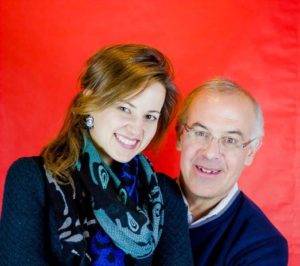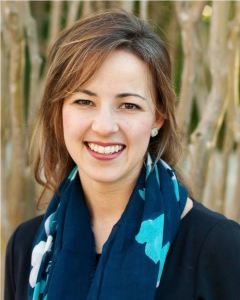Has he formally converted to Christianity yet?
Washington Post:
New York Times columnist David Brooks weds his former researcher Anne Snyder
Knot, tied: New York Times columnist David Brooks wed Anne Snyder, his former research assistant, on Sunday.
The couple’s relationship sort-of went public in an inauspicious way — Politico noted in a wink-wink 2015 piece that the conservative columnist had devoted an outsized amount of verbiage in the acknowledgements of his book “The Road to Character” to Snyder, who is 23 years his junior. But all’s well that ends with bells, and Atlantic Media owner David Bradley and his wife, Katherine Bradley, threw a rehearsal luncheon for the couple on Saturday, we’re told (that poolside tent saw a lot of activity this weekend), followed by a Sunday ceremony.
It’s the first marriage for Snyder, 32, now a freelance writer and director of a Houston, Tex., non-profit initiative. Brooks, 55, acknowledged his split from first wife, Sarah Brooks, in early 2015. They have three children.
Even though David may now be a Christian, I am glad to see he hasn’t lost his chutzpah.
The Hyde Park Institute presents:
Speaking of Character (with Anne Snyder, David Brooks, and Candace Vogler)
Program Description:
Many different cultures treat developing good character as one of the central challenges in human life. Your character draws together strengths that help you to pursue and promote good reasonably, avoid bad responsibly, and participate in the collective movements toward common good that shape the social world in which you find yourself. Good character is, as one says, a proof against rewards–a good person does not, for instance, betray her friends or her firm for the sake of personal advantage. Good character is supposed to help people set their priorities, to think well about good courses of action they might pursue here and now, experience sorrow over genuine losses, joy over real triumphs, and more generally to live wisely and well.
With background reading by two philosophers, we will gather to think and talk about character in a one-day seminar. Questions that will orient our discussion include:How has your own character been shaped?
In what ways do you expect that support for character development might be hard to come by in the next decade?
What rhythms, practices, or institutions might you engage and rely upon to help you move forward on a path to strong character?
David Brooks, Anne Snyder, and Candace Vogler hope that you will join a conversation about character.Program Details:
Seminar Date: Saturday May 27th
Seminar Time: 10 a.m. – 3:30 p.m.
Schedule: 10 a.m. – 11 a.m. Coffee
11 a.m. – 12:30 p.m. Session I
12:30 p.m. – 2 p.m. Lunch
2 p.m. – 3:30 p.m. Session II
Location: Cobb Hall 402
Participation: To take part in the seminar, please complete the application below by April 24th.Our Speakers:
David Brooks
David Brooks became an Op-Ed columnist for The New York Times in September 2003. He is currently a commentator on “The PBS Newshour,” NPR’s “All Things Considered” and NBC’s “Meet the Press.” He is the author of “Bobos In Paradise: The New Upper Class and How They Got There” and “The Social Animal: The Hidden Sources of Love, Character, and Achievement.” In April of 2015 he came out with his fourth book, The Road to Character, which was a #1 New York Times bestseller. Mr. Brooks also teaches at Yale University, and is a member of the American Academy of Arts & Sciences.
Anne Snyder
Anne Snyder is the Director of The Character Initiative at The Philanthropy Roundtable, a pilot program that seeks to help foundations and wealth creators around the country advance character formation through their giving. She is also a Fellow at the Center for Opportunity Urbanism, a Houston-based think tank that explores how cities can drive opportunity and social mobility for the bulk of their citizens. Prior to jumping to the Lonestar state she worked at The New York Times in Washington, as well as World Affairs Journal and the Ethics and Public Policy Center. She holds a Master’s degree in journalism from Georgetown University and a B.A. in philosophy and international relations from Wheaton College (IL). Anne has published in National Journal, The Washington Post, The Atlantic Monthly, Philanthropy Magazine, Orange County Register, Center for Opportunity Urbanism, The Institute for Family Studies, FaithStreet, Comment Magazine, Verily, Humane Pursuits, and FareForward.
I can’t wait to learn some amazing insights on building character from David and Anne.





